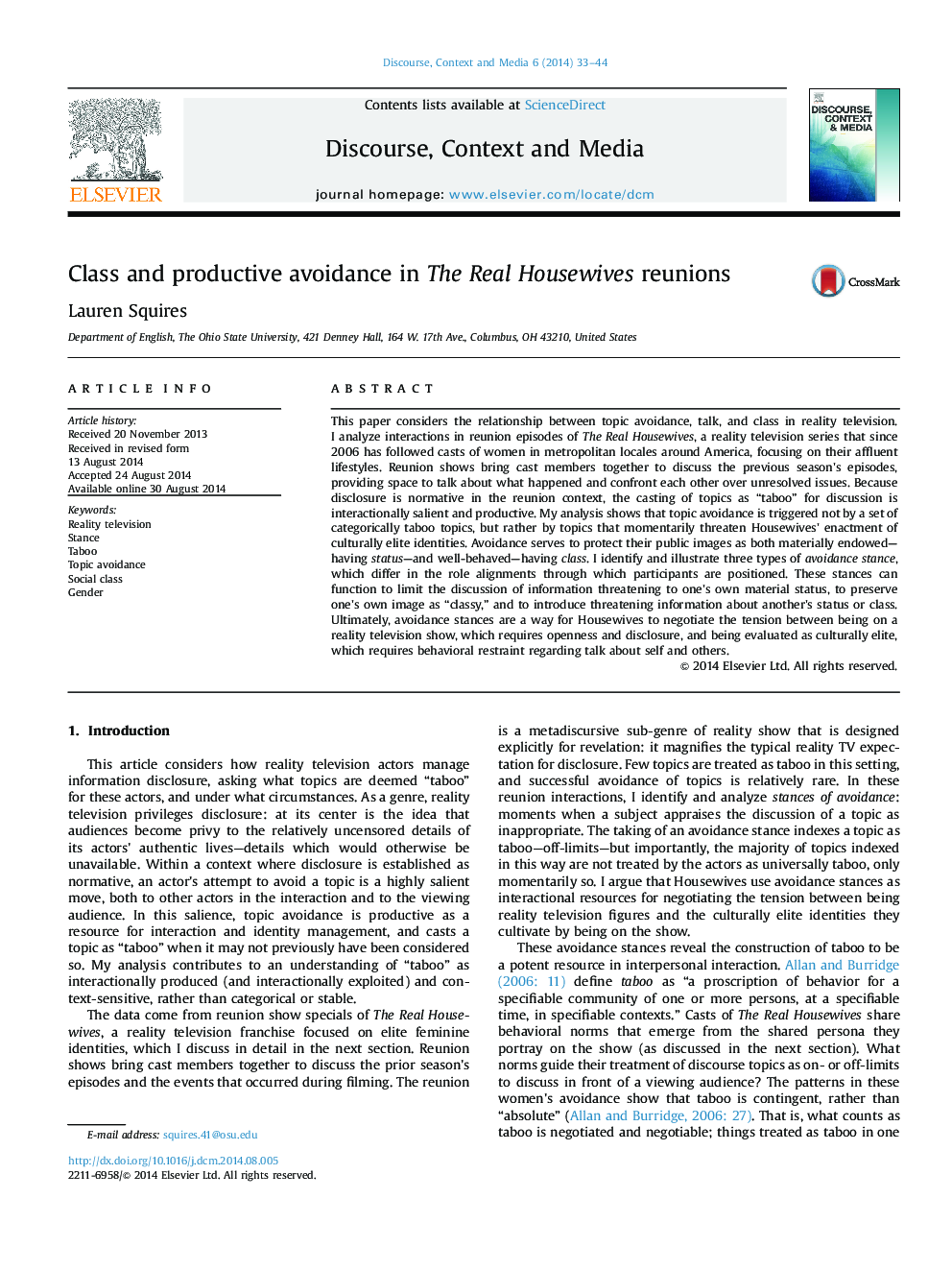| Article ID | Journal | Published Year | Pages | File Type |
|---|---|---|---|---|
| 1100546 | Discourse, Context & Media | 2014 | 12 Pages |
•Within reality television, taboo is interactionally produced, not categorical.•“Elite” identities aspire to both status and class, which are not synonymous.•Reality TV stars face a tension between disclosure and behaving in “classy” ways.•Topic avoidance is an interactional resource for maintaining elite identity.
This paper considers the relationship between topic avoidance, talk, and class in reality television. I analyze interactions in reunion episodes of The Real Housewives, a reality television series that since 2006 has followed casts of women in metropolitan locales around America, focusing on their affluent lifestyles. Reunion shows bring cast members together to discuss the previous season׳s episodes, providing space to talk about what happened and confront each other over unresolved issues. Because disclosure is normative in the reunion context, the casting of topics as “taboo” for discussion is interactionally salient and productive. My analysis shows that topic avoidance is triggered not by a set of categorically taboo topics, but rather by topics that momentarily threaten Housewives׳ enactment of culturally elite identities. Avoidance serves to protect their public images as both materially endowed—having status—and well-behaved—having class. I identify and illustrate three types of avoidance stance, which differ in the role alignments through which participants are positioned. These stances can function to limit the discussion of information threatening to one׳s own material status, to preserve one׳s own image as “classy,” and to introduce threatening information about another׳s status or class. Ultimately, avoidance stances are a way for Housewives to negotiate the tension between being on a reality television show, which requires openness and disclosure, and being evaluated as culturally elite, which requires behavioral restraint regarding talk about self and others.
